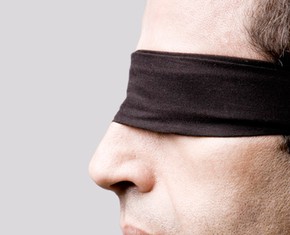The views expressed in our content reflect individual perspectives and do not represent the authoritative views of the Baha'i Faith.
Do you believe being a good person will get you into heaven? If you answer yes, you’re not alone. Surveys show that most people believe being a good person is enough to merit an eternal life.
People of many religious beliefs feel that you will be rewarded after death if you simply do more good deeds than bad ones. Many believe you simply need to do enough good deeds to tip the scales.
This idea seems to suggest that as long as your spiritual bank account has a positive balance when you die—even a single cent—you’re good to go! If your spiritual bank account has a negative balance, well, oops, you’re going to hell. But, if all your good deeds add up to over half, then heaven should be your final destination.
So how can you be sure that at least half of your life has been good—and what exactly is a good person? Is a good person anyone who doesn’t break laws or commit serious crimes? Or is there a higher standard, perhaps? Could being a good person mean not breaking any laws, but actually performing positive actions too? Does giving 10% of your income to your church, or treating everyone fairly, or volunteering your time once a month make you a good person? How about 20% to the church and volunteer twice a month—will that insure you make the cut, or get you a seat closer to the front in Heaven? What does the Bible say?
The Bible says faith is necessary for salvation; and faith without action is meaningless:
Without faith it is impossible to please him. For whoever would draw near to God must believe that he exists and that he rewards those who seek him. – Hebrews 11:6.
What good is it, my brothers, if someone says he has faith but does not have works? Can that faith save him. – James 2:14
Faith by itself, if it does not have works, is dead. – James 2:17.
But the Bible also warns us just a few verses earlier:
For the person who keeps all of the laws except one is as guilty as a person who has broken all of God’s laws. – James 2:10.
What happened to that 51% rule? How can just one act of disobedience bankrupt your spiritual bank account? According to James, even though you might consider yourself mostly a good person, breaking one law is the same as breaking all of God’s laws. That sounds pretty harsh—after all, doesn’t the Bible say God is loving and forgiving?
Maybe we need to think about it like this: Imagine that you’re a good person. You work hard as an accountant, obey the law, care for your family, and even volunteer at a soup kitchen for the homeless once a month. One day at work, all that money becomes too tempting and you embezzle a large amount. Of course, you eventually get caught. Will a judge let you off the hook because you are basically a good person—because you don’t have any speeding tickets and you volunteer at a food bank? Probably not. You may have kept every other law, but you stole money and now you’re a thief. You’re going to jail. Whether you broke that single law or whether you broke other laws as well, you end up in the same place—off to jail you go.
Baha’u’llah, the prophet and founder of the Baha’i Faith, put it this way:
The first duty prescribed by God for His servants is the recognition of Him Who is the Dayspring of His Revelation and the Fountain of His laws … Whoso achieveth this duty hath attained unto all good; and whoso is deprived thereof, hath gone astray, though he be the author of every righteous deed. It behooveth every one who reacheth this most sublime station, this summit of transcendent glory, to observe every ordinance of Him Who is the Desire of the world. These twin duties are inseparable. Neither is acceptable without the other. Thus hath it been decreed by Him Who is the Source of Divine inspiration. – Baha’u’llah, The Most Holy Book, p. 19.
Abdu’l-Baha further explained:
… the foundation of success and salvation is the recognition of God, and … good deeds, which are the fruit of faith, derive from this recognition.
When this recognition is not attained, man remains veiled from God and, as he is veiled, his good works fail to achieve their full and desired effect. … good deeds alone, without the recognition of God, cannot lead to eternal redemption, to everlasting success and salvation, and to admittance into the Kingdom of God. – Abdul Baha, Some Answered Questions, newly revised edition, pp. 274-275.
So, there is no 51% rule after all! The foundation for success and salvation is the recognition of God. Without this recognition of God, a man is blindfolded and his good works will not lead him to redemption. They’re still good works, of course, but they could be motivated by less-than-noble reasons, so they may not qualify as truly and purely good.
What does it mean, then, to “recognize God?” The Baha’i teachings say:
He Who is everlastingly hidden from the eyes of men can never be known except through His Manifestation, and His Manifestation can adduce no greater proof of the truth of His Mission than the proof of His own Person. – Baha’u’llah, Gleanings from the Writings of Baha’u’llah, p. 49.
Entrance into the Kingdom of God in the afterlife, as Baha’is understand it, requires a recognition of God—Who is unknowable. That seems like an impossible contradiction, but the Baha’i teachings also say that God can only be recognized through His manifestations, His prophets and messengers:
It behooveth us, therefore, to make the utmost endeavour, that, by God’s invisible assistance, these dark veils, these clouds of Heaven-sent trials, may not hinder us from beholding the beauty of His shining Countenance … – Baha’u’llah, The Book of Certitude, p. 73.
















Comments
Sign in or create an account
Continue with Googleor